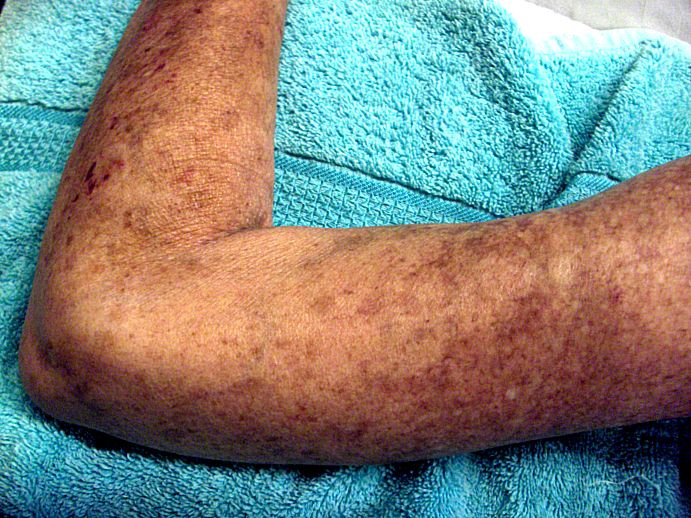What is scleroderma? The incurable disease that killed Auckland man after turning his body to 'stone'
"I wouldn't wish this disease on anyone because it's such a nasty thing," Callan Fabian had said in an interview.

An Auckland man, who was suffering from scleroderma, a rare disease that gradually made his body harden up like stone, has died on Thursday morning (16 November).
Callan Fabian's condition had caused his skin to harden. His joints were locked in place and he was unable to roll over without help. He also suffered from painful ulcers on his joints and mouth.
Ann Wills from Scleroderma Auckland, a non-profit support group, said, "It was pretty unexpected, we were hoping he'd make it until Christmas."
"He said he was not going to die until we had our Christmas party but he was in a lot of pain," she added, according to Stuff.co.nz.
In an interview with Daily Mail Australia, the 44-year-old had said that specialists first diagnosed him with this condition more than a decade ago. He had been given a 50% chance and doctors had told him that the disease would likely cause early death.
Staying positive was his priority but he knew how much suffering this disease could bring, he had said. "I wouldn't wish this disease on anyone because it's such a nasty thing."
What is scleroderma?
Scleroderma is a rare disease whose cause is not yet known. It is not contagious, infectious, cancerous, malignant or hereditary. The disease causes the human body to generate too much collagen, which attacks healthy organs causing them to be overtaken by scar tissue.
The disease is three to four times more common in females than in males. Doctors can treat the symptoms but there is no prevention method yet to avoid or decrease the risk of scleroderma.
There are two forms of the disease: localised scleroderma that mainly affects the skin, and systemic scleroderma or generalised scleroderma, which can involve many body parts or systems.
According to Scleroderma & Raynaud's UK (SRUK), a charity website, about 2.5 million people worldwide have scleroderma, with around 12,000 people diagnosed in the UK. Around 1,000 people in New Zealand alone are believed to be suffering from this disease, according to a New Zealand Herald report.
Apart from the skin, scleroderma can involve the oesophagus, blood vessels, kidneys, lungs, blood pressure, and bowels.
The body tissues of a person suffering from the disease are attacked by his own immune system and the condition leads to thickness and firmness of the skin. It causes local or widespread signs of inflammation like redness, swelling, tenderness, itching, and pain.
According to the WebMd website, the blood vessels of the person suffering from this disease thicken and do not function normally. This leads to tissue damage and high blood pressure.





















